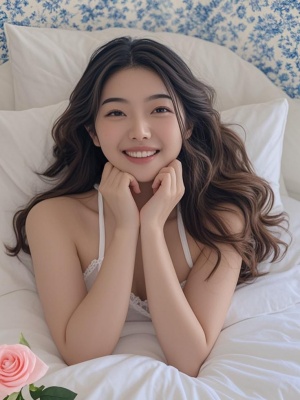Simple Portrait Drawing: A Beginner's Guide to Capturing Likeness
Portrait drawing is one of the most rewarding yet challenging forms of art. While complex portraits require advanced skills, simple portrait drawing offers an accessible entry point for beginners. This guide will walk you through fundamental techniques to create recognizable likenesses with minimal complexity.
Essential Materials for Simple Portrait Drawing
Before starting your simple portrait drawing journey, gather these basic materials:
- Graphite pencils (HB, 2B, 4B)
- Quality drawing paper (90-110 lb weight)
- Kneaded eraser
- Blending stump or tortillon
- Pencil sharpener
According to Tate Museum's art glossary, the simplicity of materials shouldn't limit artistic expression. Many famous portrait artists began with these basic tools.
Basic Face Proportions for Simple Portrait Drawing
The Standard Measurements
Understanding facial proportions is crucial for simple portrait drawing. Follow these guidelines:

- Divide the face into three equal parts: hairline to brow, brow to nose base, nose base to chin
- Eyes sit halfway down the head
- Space between eyes equals one eye width
- Bottom of ears align with nose base
These measurements create a foundation for recognizable portraits. For more artistic techniques, explore our AI Painting Guide.
Step-by-Step Simple Portrait Drawing Process
1. Basic Shape Construction
Begin with light oval shapes to establish the head structure. This initial framework prevents proportion errors later. Many beginners skip this step, resulting in distorted features.
2. Feature Placement
Using the proportion guidelines, lightly mark where each facial feature will go. This planning stage is critical for simple portrait drawing success.
3. Refining Details
Add basic shapes for eyes, nose, and mouth. Keep details minimal - simple portrait drawing focuses on capturing likeness rather than photorealism.
Common Simple Portrait Drawing Challenges and Solutions
| Problem | Solution |
|---|---|
| Unsymmetrical features | Use horizontal guidelines and frequently flip your drawing upside down |
| Flat appearance | Add subtle shading to create dimension |
| Stiff expressions | Study natural facial dynamics from our portrait gallery |
Digital Tools for Simple Portrait Drawing
Modern artists can enhance their simple portrait drawing with digital tools. Our face swap technology allows artists to study facial structures from multiple angles. Digital sketching apps offer undo functions and layer capabilities perfect for beginners.
As noted by The Metropolitan Museum of Art, combining traditional and digital methods can accelerate learning.
Conclusion: The Joy of Simple Portrait Drawing
Simple portrait drawing removes the intimidation factor from capturing human likeness. By mastering basic proportions and practicing regularly, anyone can develop this rewarding skill. Remember that every great portrait artist began with simple sketches - your journey starts with that first pencil stroke.
For more artistic inspiration, visit our art blog featuring various drawing techniques and styles.